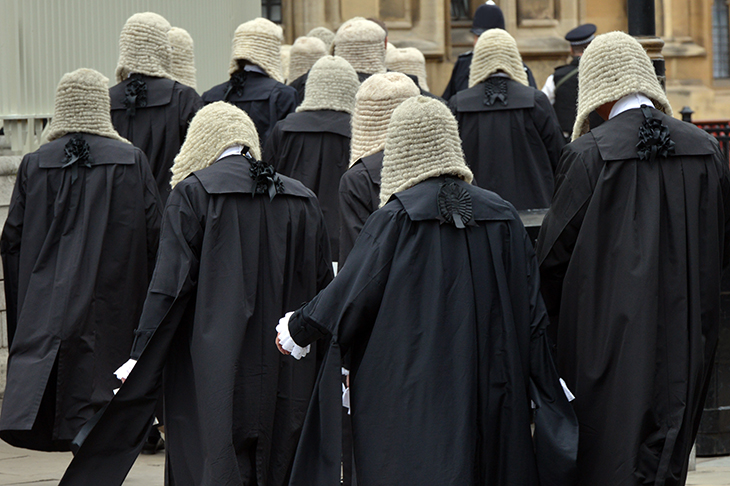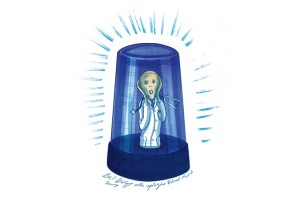When I had a cough last week, my son Joe, who has autism, shouted at me and covered his ears. I didn’t mean to cough but, to Joe, so what? His autism means he doesn’t get other people’s intentions. People like him are sometimes said to lack a ‘theory of mind’ — lacking the idea that Dad or anyone else even has a mind, possessed of its own thoughts and intentions.
This complicates his life infinitely. And that alerts us to a commonplace miracle: the contrast with the rest of us. Often we can see inside other people’s heads. We’re prolific theorizers about what they’re thinking. What’s more, we’re often right: if you flash the cash as we hit the bar I understand that you intend to buy the round; if you open the door and step aside I understand your courteous intention to let me through; when hero and heroine finally kiss it’s because they both know — though neither speaks. At its best, this faculty verges on mind reading.
Malcolm Gladwell is not focused in this case on human capacity at its best. From Talking to Strangers you might conclude that far from being mind readers, we’re hopeless at divining what’s going on behind other people’s eyes, sometimes with catastrophic results. Worse, we congratulate ourselves on our acuity, even as liars and rogues play us for fools. Thus, among apparently poor judges of others are people whose job is to judge them well.
The police, CIA, FBI, political leaders, spies and judges themselves all come out badly, Gladwell suggests, in thinking they’re sleuths of the mind when in some cases a computer — with no human intuition at all — does better. But the implication is that we’re all worse than we like to think.
As ever, Gladwell’s genius is in the telling. A storyteller with a taste for the salacious, violent and tragic, he begins with a woman pulled over by a cop for a minor traffic violation, who gets into a row, ends up in a cell, and three days later commits suicide. ‘How on earth did that escalate?’ we’re bound to ask, then made to wait for an answer. Later, there’s Amanda Knox, the young American falsely imprisoned for four years in Italy for a brutal murder, whose prosecution Gladwell laughs out of court, along with the police who thought they saw guilt in her eyes.
There are appearances by the fraudster Bernie Madoff; spooks humiliated by their confidence in trusted sources who turned out to be double agents; a sketch of Chamberlain’s belief in Hitler’s peaceful intent; there’s a foray into torture, plus a prolific child abuser trusted by children and their parents. And there are young people, blind drunk, who Gladwell tracks from party to courtroom as they argue over whether a girl consented or was raped. All of this is bolstered by references to academic psychology and a serious attempt to understand why we go wrong.
But for all the slickness of the argument, it’s worth asking how far we’re damned by these examples. Because without the stories that ease their acceptance, what do they amount to? To the underwhelming observation that fraudsters fool at least some of the people some of the time; that spies are slippery; that we often prefer to set a high bar before accusing people we know of foul things; that students who are out of their heads have poor judgment; that people under torture might say anything to make it stop, and so maybe they’re not reliable. Who’d have thought? Other claims are more arresting — that judges are poor at assessing the character of the accused, for example — or the discussion of how far pride in our perspicacity can be our undoing.
Overall, is there a case that people are bad at other people? As ever with books of popular science, the evidence presented is all on one side, consisting of egregious failures that make us wonder how people could be so stupid… until repetition invites the conclusion that this is what people do — the failure is general. In the beguiling moment of the telling we tend to forget that another book could be written about equally amazing instances of human discernment.
So I would not recommend this in the style that such books are often advertised: ‘Why everything you thought you knew about X is wrong.’ Rather, it is an attempt to make sense of just one aspect of human interaction, not a rounded portrait. Would
I recommend it at all? Without hesitation. It is not a revelation, but a wonderful provocation which Gladwell delivers like no other, an awakening to just one of the fascinations that lie in ordinary human experience.
This article was originally published in The Spectator’s UK magazine. Subscribe to the US edition here.



















